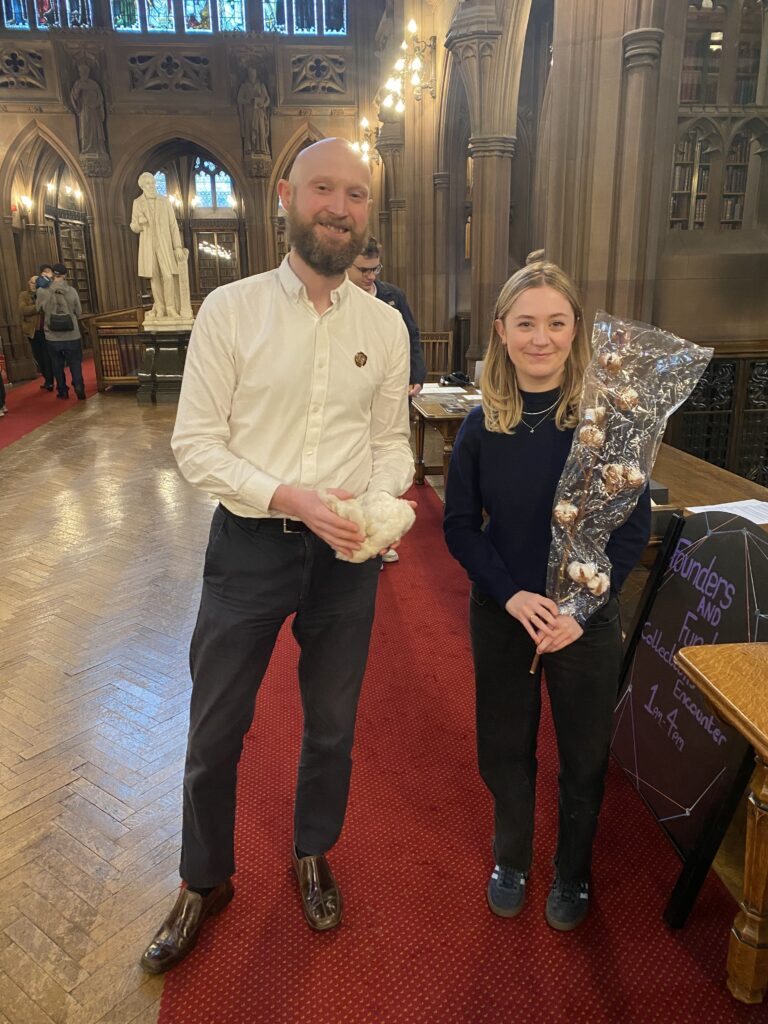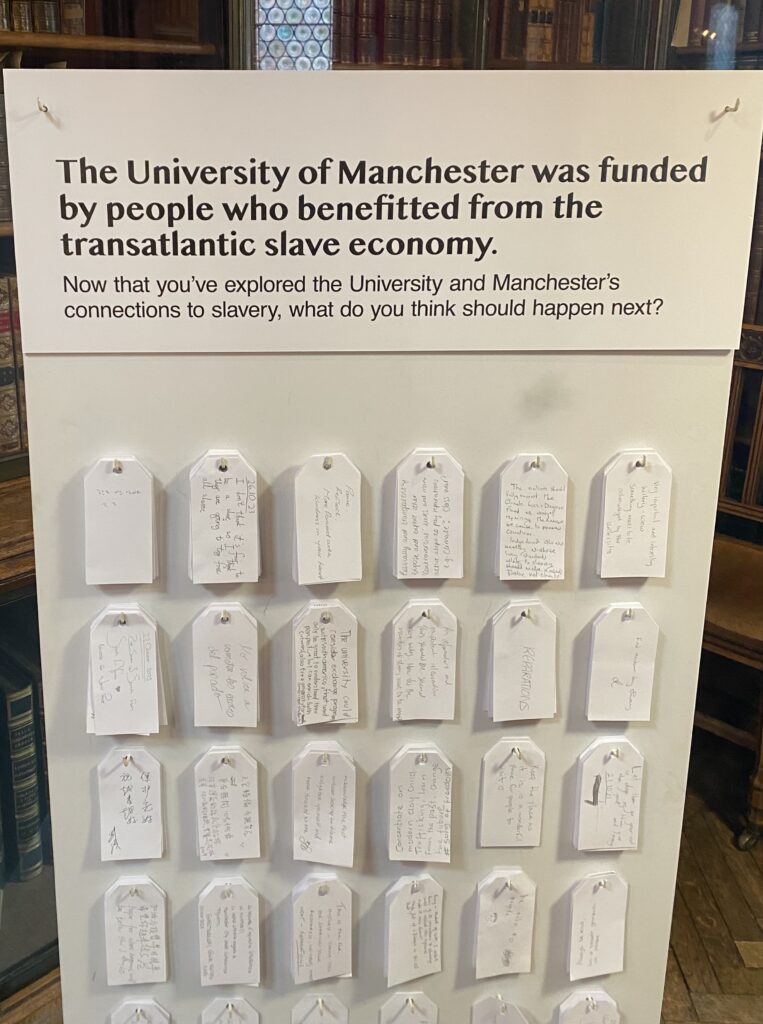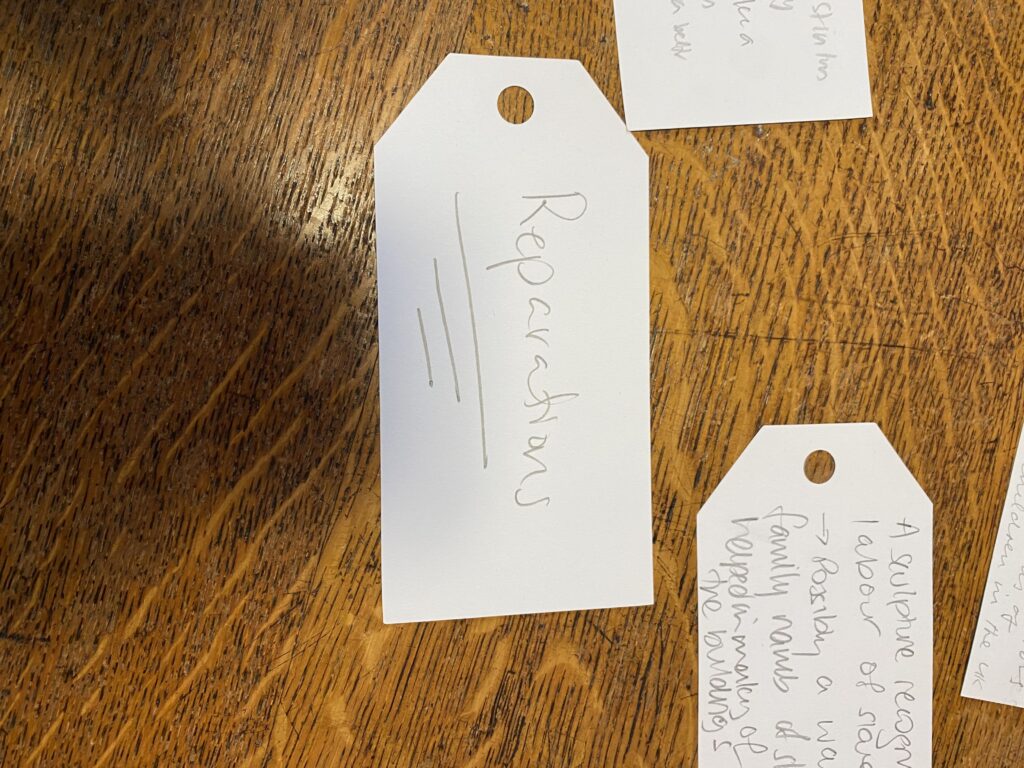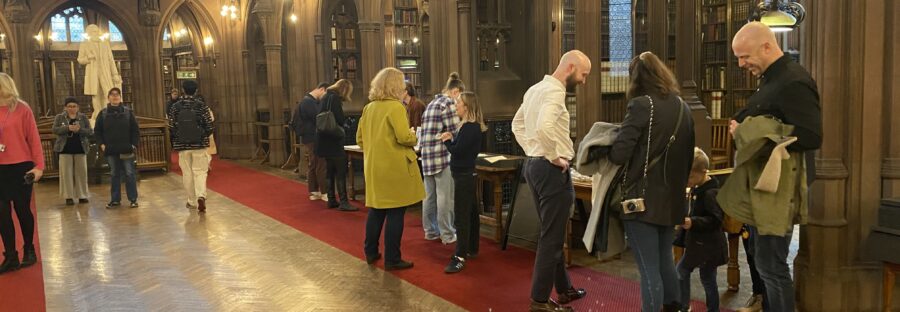University of Manchester raises awareness of their past involvement in slavery
University of Manchester raises awareness of their involvement in the transatlantic slave trade and raises the question of reparations with their exhibition ‘Founders and Funders: Slavery and the building of a University.’
- Black History Month
- Founders and Funders: Slavery and the building of a University
- University of Manchester
- Transatlantic slave trade and colonization
As a part of Black History Month the University of Manchester held a drop-in session for their exhibit ‘Founders and Funders: Slavery and the building of a University’ to raise awareness and discussions of reparations.
The University of Manchester stated, “addressing our history is part of coming to terms with our present. We’re committed to the collaborative and long-term work of repairing inequalities through our activities.”

What is the exhibition?
The exhibition opened at the John Rylands library in September 2023 and runs until March 2024. It investigates how profits from the transatlantic slave trade, colonization and manufacturing with slave-grown cotton funded the advances of Manchester.
On Friday there was a drop-in session with their public engagement team and Dr Matthew Stallard; associate researcher at the Centre for the Studies of the Legacies of British Slavery University College London.
Dr Stallard noted that one of the most important things learnt from researching the histories of slavery and colonization is how deeply imbedded they are in creating these prestigious institutions such as the University of Manchester.
What are the next steps for the University of Manchester?
Nancy Adams; researcher at the University of Manchester and campaigner said, “There is no clear plan to reparations yet. The main purpose of the exhibition is to raise awareness and provide a starting point for those conversations.”
The exhibition sought feedback about what people think the next steps of the university should be.

The main response was calling for reparations.

‘Reparations are a commitment to righting historical wrongs. The trans-Atlantic slave trade and African enslavement were an affront to humanity itself. The heinousness of this crime against humanity demands that we seek to right these wrongs.’
Dr. Irfaan Ali, President of Guyana
Dr Stallard said, “Reparations are a complicated subject. How is it inapt and calculated? Restitution is necessary and research is needed ensure structural inequalities are mitigated as much as possible.”
The university’s involvement in the transatlantic slave trade and colonization poses the question of how many other “world class” or prestigious institutions benefits and involvement, and are these institutions planning on reparations whether it is simply raising awareness.


